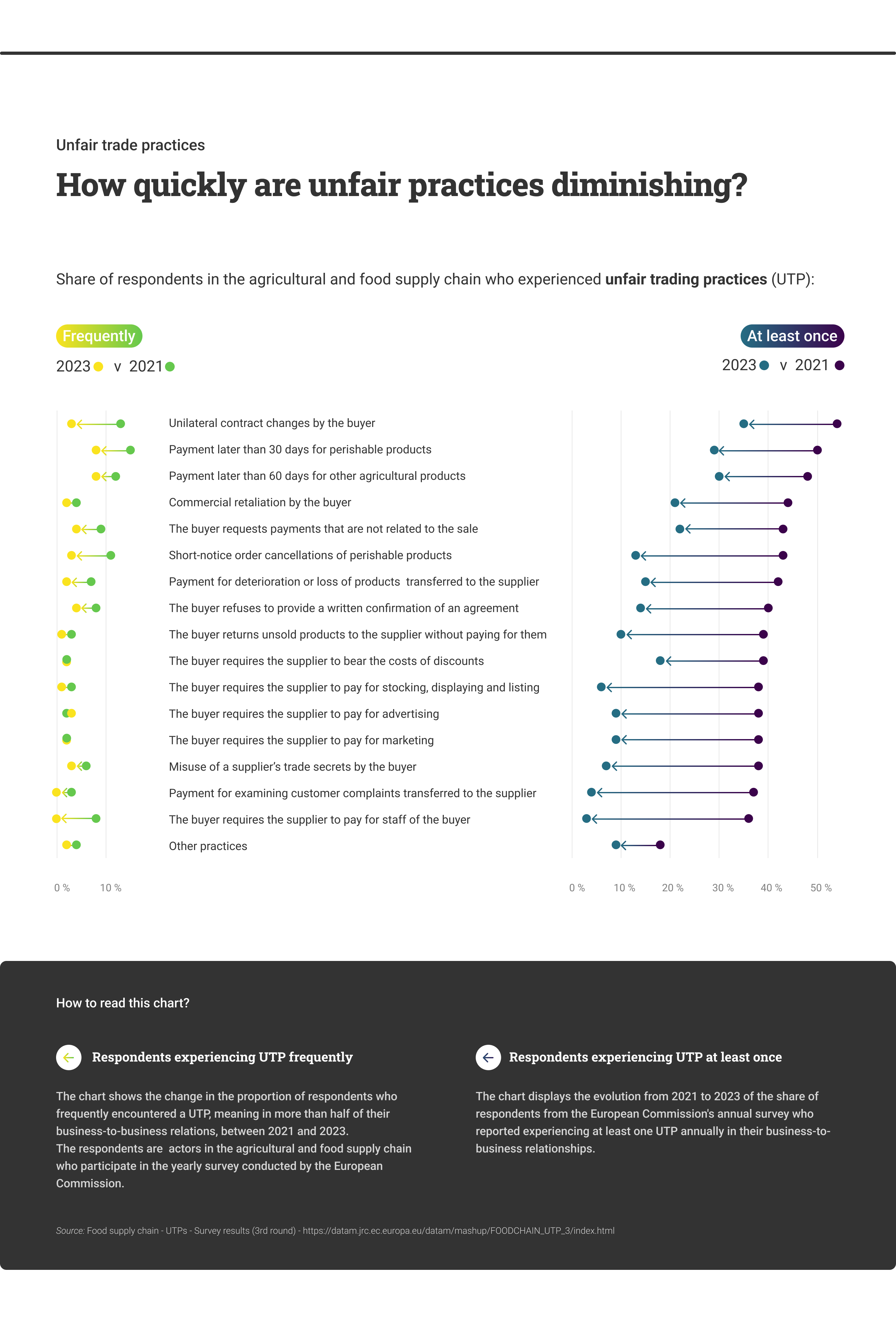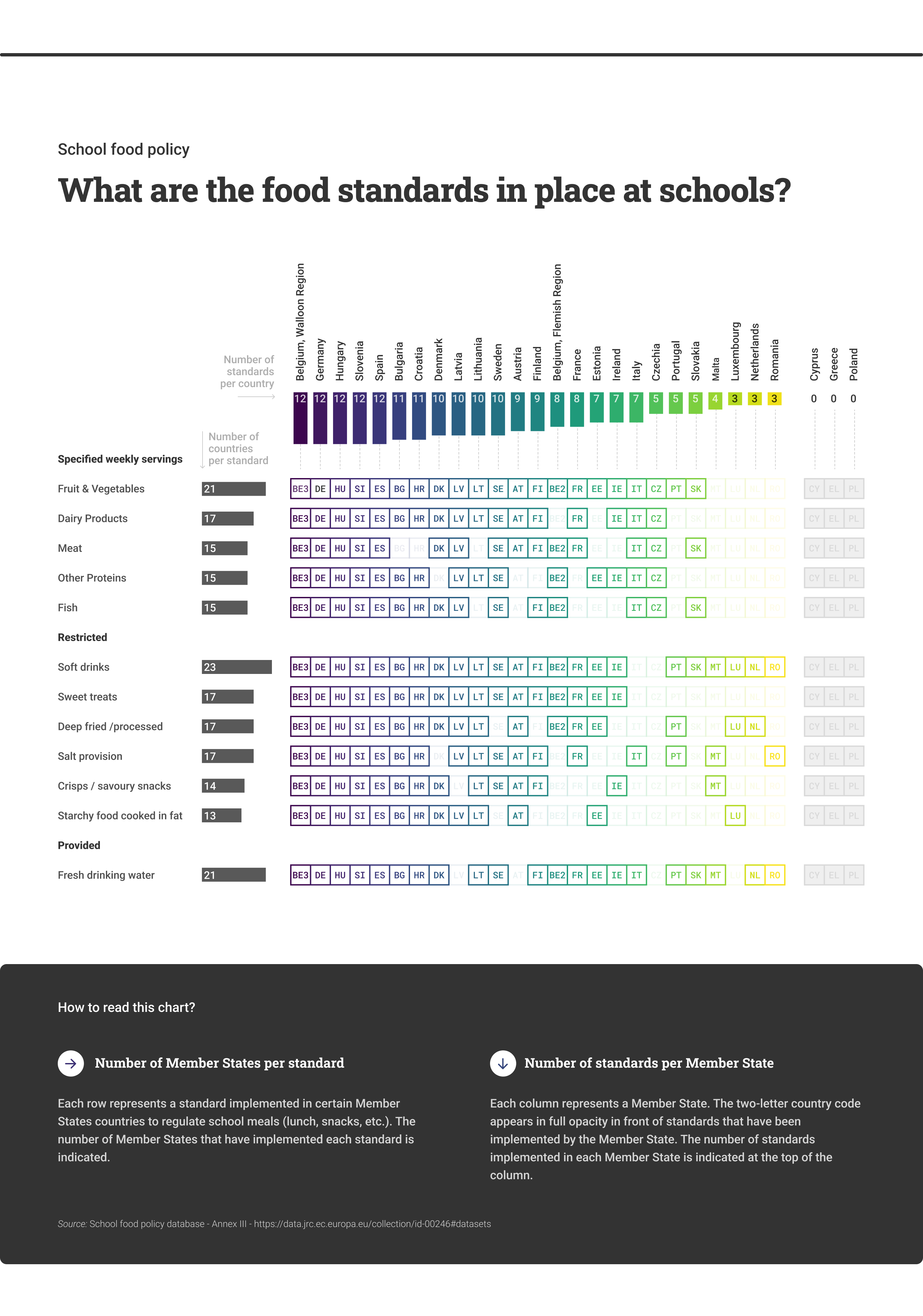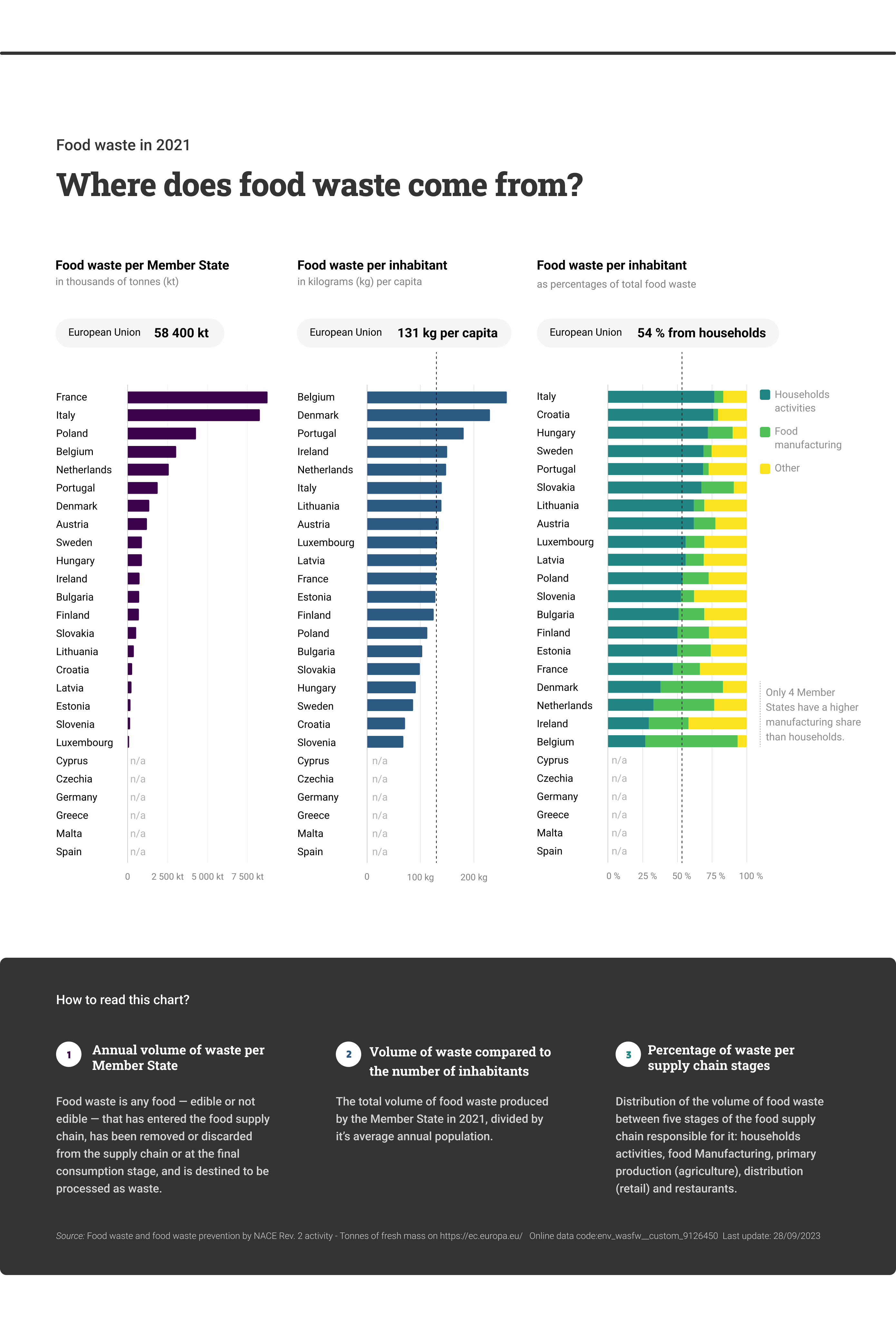Open data for a fair, healthy and environmentally friendly food system
Using open data to understand the farm-to-fork strategy
The farm-to-fork strategy is one of the pillars of the European Green Deal, which strives to make Europe the first climate-neutral continent. In this regard, the farm-to-fork strategy strives to accelerate the European Union’s transition to a sustainable food system. A sustainable food system includes schemes such as creating a sustainability labelling framework that aligns with other initiatives like front-of-pack nutrition labelling and animal welfare labelling. Such efforts reflect the close links between healthy people, healthy societies and a healthy planet.
Open data can be an important resource to support this transition, helping policymakers and citizens make informed decisions. This data story showcases how open datasets can provide valuable insights into three key aims of the farm-to-fork strategy: fairness, healthiness and environmental friendliness of food systems.
Fair food systems through open data
Building food chains that work for consumers, producers, the climate and the environment means generating fairer economic returns in the supply chain, while preserving the affordability of food. One way EU Member States try to ensure fairness in the EU food system is through measures against unfair trading practices in business-to-business relationships in the agricultural and food supply chain.
Open datasets enable us to assess the effectiveness of measures taken by Member States regarding unfair trading practices. Figure 1 shows the change in suppliers reporting unfair trading practices between 2021 and 2023. All unfair trading practices surveyed over this period saw a decrease. ‘Unilateral contract changes by the buyer’ remains the most prevalent unfair trading practice. Remarkably, the practice of buyers requiring suppliers ‘to pay for staff of the buyer, fitting out the premises used for the sale of the supplier’s products has dropped from about 35 % to less than 5%.

Figure 1: Change in the percentage of respondents experiencing unfair trading practices between 2021 and 2023.
Source: data.europa.eu/JRC
Healthy food systems through open data
Another element of the farm-to-fork strategy is ensuring that people living in the EU get healthy, affordable, sustainable food. One way Member States promote healthy food choices is through school food policies. Research shows that school food policies are important because, among other benefits, they help students establish healthy eating habits and help address significant public health concerns such as childhood obesity.
The Joint Research Centre and the Directorate-General for Health and Food Safety investigated the EU school food policy landscape. The data from the study is available as open data for reuse and further analysis. The study found that the main objectives of school food policies in Europe are to ‘improve child nutrition’ (97 %) and to ‘learn healthy habits’ (94 %). Most countries’ (EU Member States, Norway and Switzerland) school food policies cover lunch (88 %) and snacks (88 %). Our reanalysis of the data on food-based standards, shown in Figure 2, highlights that the most commonly restricted item mentioned in school food policies is ‘soft drinks’ (22 Member States), and ‘fruit and vegetables’ are most commonly included in serving guidelines (20 Member States).

Figure 2: Food-based standards for lunch by school food policy per Member State. Cyprus, Greece, and Poland did not have food-based standards for lunch by school food policy when the research study was conducted.
Source: data.europa.eu/JRC
Environmentally friendly food systems through open data
The third aim of the farm-to-fork strategy relates to the EU’s goal of reducing the environmental and climate footprint of the EU food system and strengthening its resilience. The objective is to ensure that the food chain – covering food production, transport, distribution, marketing and consumption – has a neutral or positive environmental impact. A topic related to the environmental impact of food is food waste. According to Eurostat, over 58 million tonnes of food waste (131 kilograms per inhabitant) are generated annually in the EU, with an associated market value estimated at EUR 132 billion.
Open data enables us to investigate the sources of food waste across the EU (see Figure 3). In most Member States (16 out of the 20 for which data are available in 2021), household activities account for at least half of the food waste in the food chain. Exceptions to this trend include Belgium, Denmark, Ireland, and the Netherlands, where the manufacturing sector accounts for more food waste than household activities.

Figure 3: Food waste per waste category in Member States.
Source: data.europa.eu/Eurostat
Conclusion
Open data is a valuable resource for policymakers and citizens to understand the diverse elements of the farm-to-fork strategy. Open data can shed light on fairness in the food system, such as developments relating to unfair trading practices, which have declined between 2021 and 2023. Furthermore, open data offers information on public health, such as Member States’ food standards in schools, which are set to ensure good nutrition in school meals. Additionally, open data helps us explore the topic of sustainability, including sources of food waste, which in most Member States comes from household activities. Open data can, therefore, contribute to a more holistic understanding of the food chain in the EU, ultimately supporting the transition towards a fairer, healthier and environmentally sustainable food system.
Do you have questions about the EU’s food system, sustainability, or food-related health? Translate your curiosity into insights with open datasets on data.europa.eu. Also, stay tuned for our upcoming data stories and webinars by subscribing to our newsletter and following data.europa.eu on social media.
